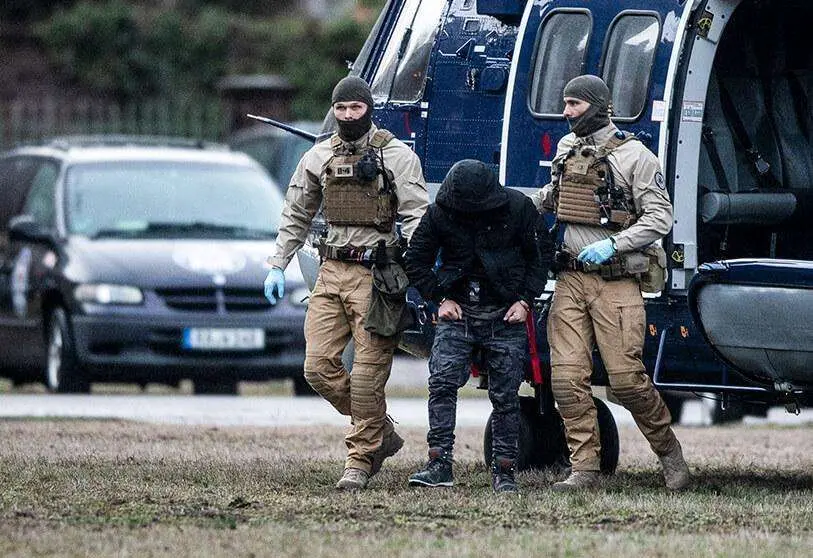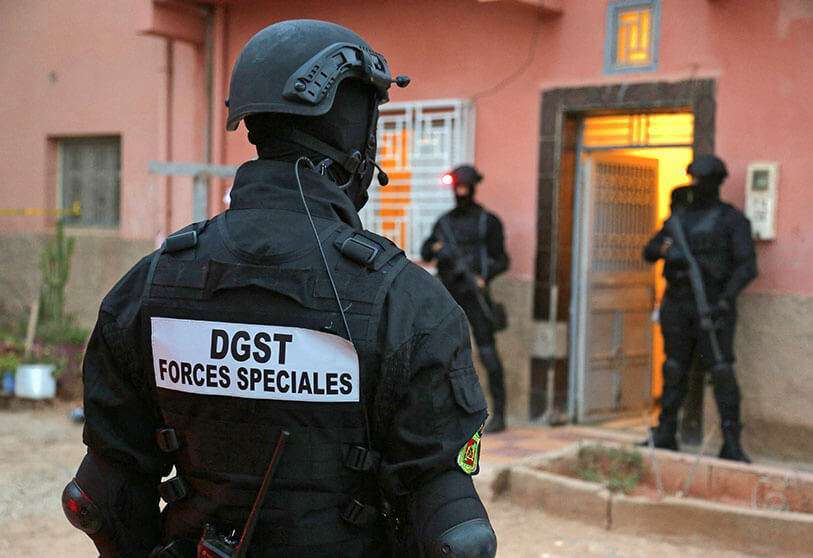El OIET elogia la colaboración entre Madrid y Rabat en la lucha antiterrorista

A report of the "Jihadist Terrorism Yearbook 2021", produced by the International Observatory for Terrorism Studies (OIET) recently published, has congratulated Spain and Morocco with their close collaboration in the fight against jihadist terrorism, valuing very positively their "great efforts".
The OIET has praised this cooperative relationship despite - or even more so - the heightened tensions between the two countries in May last year, when the entry of Polisario Front leader Brahim Gali onto Spanish soil, as well as the migration crisis in Ceuta that Rabat used as a response, raised tensions almost to the limit. Despite the "still latent mistrust that prevents the full development of many of the actions that are still necessary" between Morocco and Spain, the situation has not led to the cessation of cooperation against terrorism.
"Bilateral anti-terrorist cooperation between Spain and Morocco is a success in itself due to the overcoming of previous difficulties and the extensive implementation of measures and agreements in this regard," the report states. However, it pointed out that joint action is still "not equally defined or developed on the judicial, police and intelligence fronts", where there is still a long way to go.

The section, which is signed by Daniel Pérez, a researcher at the OIET, stresses that greater involvement of civil society, together with other public institutions, is still necessary to put a more effective brake on the threat of terrorism and violent radicalisation.
In the progress of this type of collaborative relations, Madrid and Rabat have gone from simply sharing data on cells or individuals who might be linked to jihadist terrorism to setting up joint action teams and joint patrols of Spanish and Moroccan units. These initiatives have been developed despite the lack of common legal frameworks between the two countries, an obstacle that is not present when collaboration takes place only between European countries.
According to the International Observatory for Terrorism Studies, the 'paradigm shift' in the fight against terrorism was forged during 'the beginning of the end of ETA' - 'Basque Country and Freedom', a Basque pro-independence terrorist organisation that operated in Spain from 1958 until its official dissolution in 2018 - and the attacks perpetrated in Casablanca (Morocco) in 2003. Both issues prompted a "profound reflection on the failures in the preventive field, both in the judicial, police and intelligence spheres, as well as in the fight against radicalisation", as reported by the Europa Press news agency about the report.

By 2001, Operation Dátil against people suspected of being linked to Al Qaeda - at that time headed by Osama Bin Laden - was already underway, but, according to the OIET report, before 11-M only 140 members of the National Police Corps were working on jihadist and Islamist terrorism. This reality has changed in less than a decade to the point where "there are now more than 3,000 members in charge of combating religious terrorism of a jihadist nature".
In this sense, the importance of cooperation between the two countries has been demonstrated by the assistance provided by the Moroccan Directorate General of Territorial Surveillance and the Central Bureau of Judicial Investigations to the Spanish authorities. And, as the investigators have concluded, the collaboration between the judicial bodies in Madrid and Rabat has been demonstrated during bilateral meetings between the Spanish Attorney General's Office and the Moroccan Attorney General's Office, in addition to those held between the General Council of the Judiciary and the Moroccan Supreme Court.










